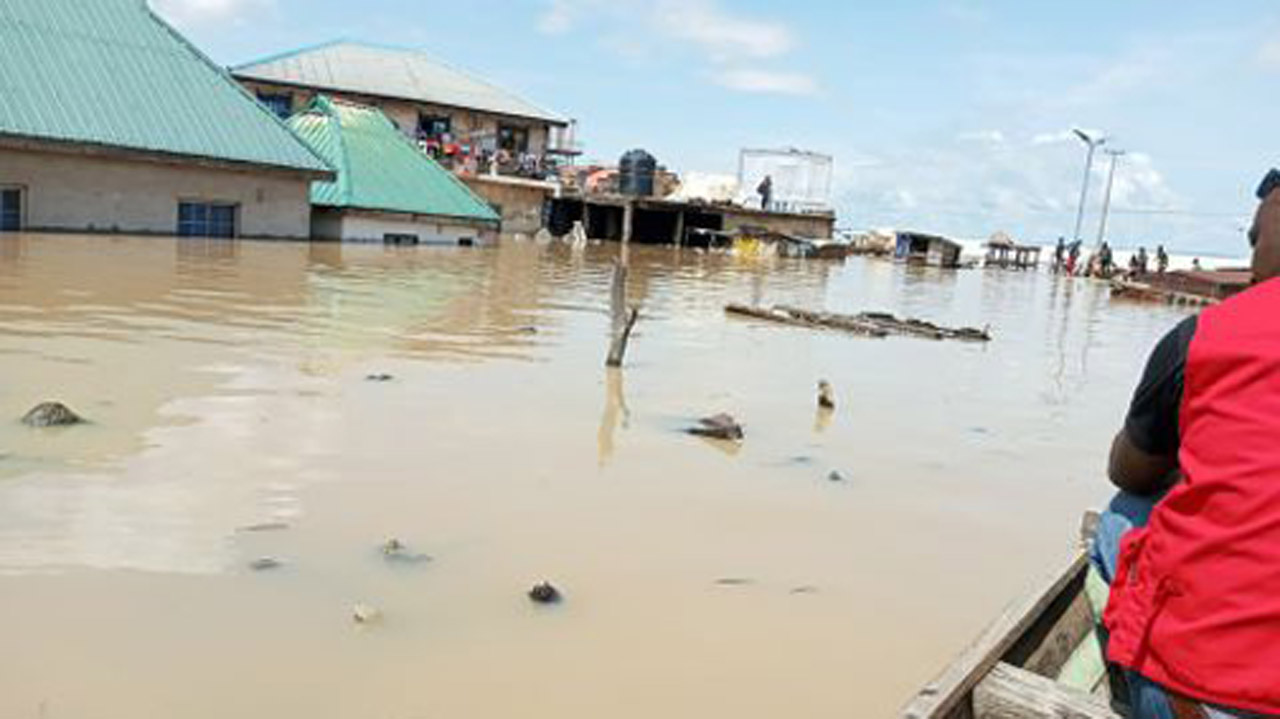COVER
Infrastructure: NNPC, BUA Group, Innoson, TETFund, Others Pledge Bailouts for FUPRE

By Evelyn Terseer, Abuja
The Nigeria National Petroleum Corporation (NNPC) yesterday led other corporate giants to pledge multi- billion naira interventions to redress the gross infrastructure deficits at the Federal University of Petroleum Effurum (FUPRE).
Representatives of the organisations and top government functionaries were participants at Roundtable in Abuja to raise funds by the nation’s Premier Petroleum University, which is the first of its kind in Africa and one of the only six globally.
At the occasion held at the Transcorp Hilton Hotel, Abuja were the Minister of State for Petroleum Resources, Chief Timipre Sylva, Minister of Labour and Productivity, Dr Chris Ngige, Minister of State for Education, Hon Emeka Nwajiuba, Group Managing Director of NNPC, Engr Mela Kyari, Catholic Archbishop Emeritus of Abuja, John Cardinal Onaiyekan, among others.
In a speech, Chairman of the occasion, and President, BUA Group, Alhaji Abdul Samad Isiyaku Rabiu pledged that a substantial part of $50 million fund earmarked for development of infrastructure in Nigerian Universities would be invested in FUPRE.
The BUA Group Chairman represented by a former Minister of Health, Dr Idi Hong assured that his group would support the University to improve its facilities.
Group Managing Director, NNPC, Engr Kyari said his Corporation and partners in the oil industry, who he said were major beneficiaries of the products of the Institution would mobilise international oil companies and contractors to support development projects in the university.
Similarly, Chairman of Innoson Group, Chief Innocent Chukwuma, who was represented by a Director of the Company, Chief Jonas Ojukwu, pledged to intervene very strongly in the university after due consultation with its management.
Chairman of the Tertiary Institutions Fund( TETFund), Alhaji Kashim Imam pledged further investments into the Institution after the sum of N3billion already donated to in the last one year.
Minister of State for Petroleum, Chief Sylva, his counterpart in Labour and Productivity, Dr Ngige and Minister of State for Education, Hon Nwajiuba in separate speeches hailed FUPRE for coming up with a novel idea to seek support and partnerships with the private sector to fund University rather than rely on the Federal Government as has been the tradition.
The Ministers said the government alone could no longer sufficiently finance the needs of the Universities hence the imperative for the Universities to look inwards.
Nwajiuba who was represented by his Adviser on Policy, challenged other universities in the country to explore various strategies to partner with the private sector for accomplishment of development goals.
Petroleum Varsity Patents 11 Technologies, Seeks Commercial Production
Vice Chancellor of the University, Prof Akpofure Rim-Rukeh had in his welcome speech said the Roundtable was called to showcase the enormous potentials of the university.
He disclosed that the University had patented 11 technologies in various sectors and called on industrialists to collaborate with the institution for commercial production of the patented technologies.
He mentioned some of the new patents as multi-metre system, speed boat, Fuel efficient Vehicle, Oil pipe vandalisation detection equipment and fuel adulteration detection equipment among others.
The Vice Chancellor called on the private sector to be involved in financing educational sector.
The Federal University of Petroleum Resources Effurum (FUPRE), Delta State which was established by the Federal Government on March, 2007 and the Act establishing the University was signed into law on October 17, 2017 by President Muhammadu Buhari.
He has the vision to be ” the premier international institution with state-of-the-art facilities to provide for the Petroleum and allied sectors, world-class education, training, research, consultancy and extension services”.
Despite all the numerous achievements recorded by the University, Prof. Rim-Rukeh lamented over the challenges of the institution, which include, absence of power supply, insufficient infrastructure resources such as Lecture Theaters, Laboratories, Libraries, poor teaching and learning facilities, weak ICT facilities, low carrying capacity to admit students and inadequate funding for recurrent and capital expenditure in hampering the great vision.
He beckoned on individuals and corporate organisations to see this as a clarion call and invest in FUPRE in order to move the institution and by extension, the education sector to a greater height.
COVER
NASS Proposes Distinct Salary Structure for Legislative Aides

By Eze Okechukwu, Abuja
The National Assembly has sought for a distinct salary structure for the legislative aides of the 469 federal lawmakers in both the Senate and House of Representatives, totalling over 300,000.Aside from a distinct salary structure which will take care of their various peculiar financial needs, the National Assembly also sought for the insulation of appointments of the political appointees from arbitrary terminations by their principals.
Making the calls in his address at a three-day capacity building training organised yesterday for the legislative aides in Abuja yesterday, the Clerk to the National Assembly, Kamoru Ogunlana said that the challenges must be tackled for the aides in other to ensure a better service delivery from them and by extension, better the performance of the federal lawmakers. According to Ogunlana, “We are not unaware of the challenges you face. Although Legislative Aides are political appointees, your conditions of service are tied to the template of career civil servants, which appears not to take cognizance of your peculiar needs.”Unlike the career civil servants, your appointments do not guarantee job security with your tenure largely dependent on your principals, and ranking is often not based on qualifications or competence.”Furthermore, there is currently no comprehensive law or guidelines clearly defining the duties and responsibilities of the various cadres of Legislative Aides. This leaves gaps that sometimes expose you to arbitrary decisions and unfair treatment.”The present management believes it is time to address these systemic issues.We are advocating that the National Assembly Service Commission and the Revenue Mobilization Allocation and Fiscal Commission should consider developing a distinct salary structure and conditions of service that reflect the unique nature of your work.”We also believe the qualifications for appointments should be reviewed to attract competent and experienced personnel. Equally important is the need for mechanisms to prevent arbitrary termination of appointments by principals”.In his remarks at the training organized by the National Assembly in collaboration with Research Enterprise Systems (RES), the Chairman of National Assembly Service Commission (NASC), Saviour Enyiekere tasked the legislative aides to be more knowledgeable and skillful than their principals for robust legislative outputs at both chambers of the National Assembly.Categories of legislative aides attending the three-day event are the Chief of Staff to the four Presiding officers in NASS, their Special Advisers, Senior Legislative Aides (SLA) to federal lawmakers and amongst others.COVER
Bandits Overrun Eight Wards, Trap Farmers, Kill 12 in Katsina

By David Torough, Abuja
Tears flowed in the Katsina State House of Assembly yesterday as Chief Whip, Ibrahim Umar Dikko, lamented that bandits had seized control of eight out of 10 wards in Matazu Local Government Area.Dikko, who spoke during plenary, alleged that 12 people were killed in just two days, while farmers have been forced to abandon their fields due to relentless attacks.
“Out of the 10 wards, eight are under siege. Farmers cannot go to farms. Just yesterday, by the entrance of the town near the secondary school, they killed a young man and rustled four oxen,” Dikko said, before breaking down in tears.The Assembly swiftly passed motions urging state and federal governments to send reinforcements to Matazu and neighbouring Sabuwa, and to probe the reported withdrawal of security operatives from several villages.Residents say the attacks persist. Farmlands remain inaccessible, families displaced, and raids continue without resistance. “We have not seen any fresh deployment. People are too scared to return to their farms,” said Aminu Murtala, a resident of Rinjin Idi village. Six communities have already petitioned the governor over the worsening insecurity.Matazu council chairman, Shamsuddeen Muhammad Sayaya, has appealed for calm, assuring residents that authorities are working “Tirelessly” with security agencies to restore peace.Meanwhile, Governor Dikko Radda admitted that nearly 90% of the bandits tormenting Katsina are locals, not outsiders. He stressed that insecurity remains the biggest obstacle to the state’s development and highlighted efforts to strengthen local security outfits by recruiting youths from the hardest-hit communities.Meanwhile, in Kaduna, regional leaders and security experts converged for the Northwest Summit on Preventing and Countering Violent Extremism, where stakeholders called for a coordinated strategy to confront terrorism, banditry, and extremism across state and international borders.The summit emphasised tackling root causes such as poverty, unemployment, poor governance, and climate pressures, while pushing for inclusive, people-centred governance as a pathway to peace.COVER
Over Three Million Nigerians Displaced by Flood, Says FG

By Ubong Ukpong, Abuja
The Federal government on Monday Expressed concerns that over Three Million Nigerians were being currently displaced by flood.Humanitarian Affairs and Poverty Alleviation Minister of State, Tanko Sununu, who conveyed these concerns said Nigeria was presently undergoing a worse humanitarian crisis.
This was also as the minister warned that millions of citizens risked sliding deeper into hunger and malnutrition as global aid funding was dwindling. The Minister, who spoke during the inauguration of the House of Representatives Ad-hoc Committee on Flood Management and Response, said that the combined effects of natural disasters, insecurity, and shrinking donor support have created a “critical humanitarian challenge” for the country.“Globally, humanitarian funding is shrinking, and Nigeria is not exempt,” the minister stated.“Just a few days ago, the World Food Programme suspended some of its activities, which had supported more than 1.2 million Nigerians with emergency transfers in the North-East. This leaves over 300,000 children at risk of malnutrition, while more than 200,000 are already receiving treatment.”According to United Nations estimates cited by the minister, over 24.8 million Nigerians have suffered some form of hunger, while more than 3 million people remain internally displaced as a result of flooding, insecurity, and other natural disasters.Poverty, the minister stressed, remains unevenly spread across the country, with the North accounting for about 65 percent of Nigeria’s poor population. “Out of this 65 percent, more than 70 percent are smallholder farmers. Sadly, most of them have lost their farmlands and livelihoods to floods and droughts,” he said.”In response to the crisis, the Federal Government is strengthening interventions through the National Social Investment Programme (NSIP). The minister disclosed that under the Government Enterprise and Empowerment Programme (GEEP), smallholder farmers have received interest-free loans of ₦300,000 each to help them recover from losses.He also revealed that more than 5.9 million households—approximately 25 million Nigerians—have benefited from N419 billion in conditional cash transfers. The funds, he explained, are meant to cushion the impact of economic hardship and sustain vulnerable families.“These efforts are part of President Bola Tinubu’s commitment to ensuring that Nigerians maintain dignity of life despite economic challenges,” the minister said. “With the support of the House of Representatives, we will continue to work to protect vulnerable households and restore livelihoods.”The minister commended the National Assembly for setting up a dedicated committee to oversee humanitarian interventions. He expressed optimism that the move would strengthen transparency and improve the delivery of aid to affected communities.Nigeria has been one of the hardest-hit countries by the global humanitarian funding squeeze. The United Nations recently warned that its $4.7 billion humanitarian appeal for West and Central Africa is only 36 percent funded, forcing agencies like the WFP to cut food rations across the region.Delivering a welcome address, the Chairman of the newly constituted committee Rep. Maidala Balami said flooding had become more than a seasonal occurrence, describing it as a “national emergency that demands urgent, coordinated, and strategic action. “Each year, lives are lost, properties destroyed, livelihoods disrupted, and the socio-economic fabric of entire communities severely affected,” he noted. “The time for piecemeal approaches is over. What we need is a comprehensive national framework—one that encompasses prevention, early warning systems, emergency response, community resilience, infrastructure development, and climate adaptation strategies.”The committee chairman urged all stakeholders—including civil society, private sector, and international partners—to join efforts in developing a sustainable national response to flooding and humanitarian emergencies. “This inauguration is not just ceremonial—it is a clarion call to duty. We shall listen to affected communities, interface with experts, and ensure that our report provides a blueprint for lasting solutions,” he said.The lawmaker pledged that the committee would investigate root causes, assess agency preparedness, engage stakeholders, and propose lasting measures to mitigate the impact of flooding across Nigeria.Inaugurating the Committee, the Speaker of the House of Representatives, Rep. Abbas Tajudeen, who was represented by the Leader of the House Prof. Julius Ihombvere charged members to provide both immediate and long-term solutions to Nigeria’s recurring flood crisis.He said flooding has in recent years inflicted devastating losses on Nigerian communities, destroying livelihoods, displacing families, and undermining development efforts. “Flooding goes beyond being a mere environmental issue. It is an economic, social, and humanitarian challenge,” the Speaker declared. “Every year, thousands of families are displaced, farmlands are submerged, and critical infrastructure is washed away. These tragedies demand deliberate and well-coordinated responses.”The Speaker stressed that the 10th House of Representatives remains committed to addressing matters that directly affect Nigerians, including natural disasters. He said the duty of lawmakers extends beyond lawmaking to anticipating challenges, strengthening institutions, and ensuring government responses meet the needs of citizens.He tasked the committee to identify gaps in Nigeria’s preparedness and recommend a clear roadmap for national resilience against flooding.“The House expects this committee to identify both the immediate and long-term measures required to prevent loss of lives and property, while recommending strategies that will move the nation from reactive to preventive measures,” Abbas said.Abbas urged the committee to work closely with key agencies, including the National Emergency Management Agency (NEMA), the Ministries of Environment, Water Resources, Health, Works, and Housing, as well as state and local governments. He also highlighted the role of the Nigerian Space Agency in providing satellite imagery for effective flood mapping.“Flood management requires the concerted involvement of all relevant stakeholders. Only a holistic and coordinated approach will ensure a sustainable response,” he emphasized.The Speaker further directed the committee to pay special attention to legislative gaps hindering effective flood management. Where laws are weak, outdated, or insufficient, he said, the House stands ready to strengthen the legal framework to better protect Nigerians.NEMA Rescue25 Persons, 25 Missing in Sokoto Boat MishapThe National Emergency Management Agency on Monday confirmed the rescue of 15 more persons in the ongoing operation following Sunday’s tragic boat mishap in Kojiyo village, Goronyo Local Government Area of Sokoto State.In a statement signed by the agency’s Head of Press Unit, Manzo Ezekiel, NEMA said the latest rescue brings the total number of survivors to 25, while 25 others remain missing.The statement noted that the Director General of NEMA, Zubaida Umar, also assured that rescue operations will be sustained and further intensified until all missing persons are rescued.“Recalled that the ill-fated canoe, carrying over 50 passengers en route to Goronyo Market, capsized in Kojiyo village on Sunday. Initial operations had led to the rescue of 10 passengers, while the intensified efforts yielded an additional 15 rescues. Authorities also recovered seven motorcycles from the river.“To enhance the effectiveness of the operation, the management of Goronyo Dam has temporarily closed the dam for two days, allowing divers and rescuers greater access to the affected area,” it stated.It said the NEMA rescue team, led by the Head of the Agency’s Sokoto Operations Office, Mr. Aliyu Shehu Kafindangi, remains fully deployed at the scene.“The team is working in close collaboration with the Sokoto State Emergency Management Agency (SEMA), National Inland Waterways Authority (NIWA), Goronyo Local Government Authority, and local divers to sustain the coordinated search and rescue operations.“The Director General Mrs Zubaida Umar, reaffirmed NEMA’s unwavering commitment to saving lives, supporting affected families, and providing timely updates to the public,” it added.
























